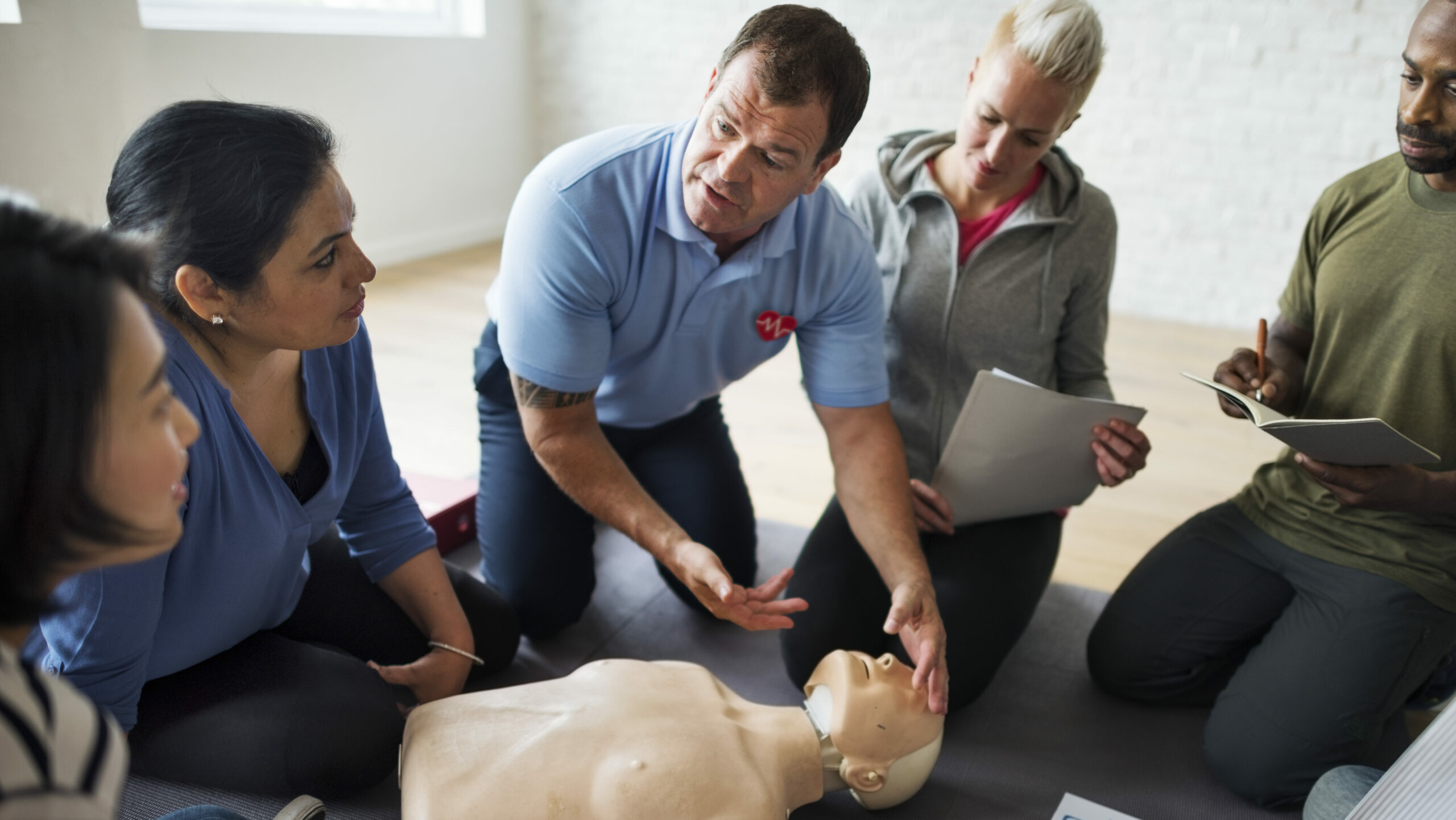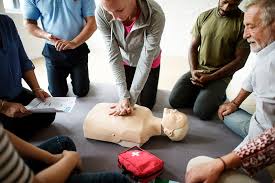Introduction
In today's busy globe, the capacity to respond promptly and successfully in emergency situations can be a game changer. With accidents happening daily, having the abilities to administer emergency treatment or do mouth-to-mouth resuscitation (Cardiopulmonary Resuscitation) is vital. Yet is signing up in an emergency treatment and mouth-to-mouth resuscitation program truly worth it? Besides, time and resources are precious commodities.
In this write-up, we dig deep into hltaid012 Child Care First Aid Course the experiences of our pupils who have actually taken these necessary programs. They share insights regarding their inspirations for enrolling, what they learned, and just how it transformed their expectation on emergencies. By discovering their direct accounts together with research-backed info, we'll respond to the burning question: Is an Emergency Treatment and CPR Program Well Worth It? Right here's What Our Pupils Say.
The Relevance of Emergency treatment Training
Why Must You Consider a First Aid Course?
First help training outfits people with the understanding and skills needed to offer immediate assistance during medical emergency situations. Whether it's dealing with small injuries like cuts and swellings or taking care of deadly scenarios such as cardiac arrests, an emergency treatment course encourages you to act decisively when every second counts.
Benefits of Taking a First Aid Course
Taking an emergency treatment course uses many advantages:
Life-Saving Skills: The most significant benefit is certainly the ability to conserve lives. Confidence Boost: With expertise comes self-confidence; learners feel even more ready to handle emergencies. Community Impact: Educated individuals can add positively to their areas by providing aid when needed. Career Advancement: Lots of careers require emergency treatment qualification, making it an asset for work seekers. Personal Safety: Knowing just how to take care of crashes or wellness problems in the house makes sure security for family members members.Understanding mouth-to-mouth resuscitation: An Important Skill
What Exactly is CPR?
CPR means Cardiopulmonary Resuscitation; it's an emergency procedure executed when a person's heart beat or breathing has stopped. This method entails chest compressions combined with man-made air flow (mouth-to-mouth), which helps keep blood circulation and oxygenation until specialist clinical assistance arrives.
Types of CPR Courses Available
When looking into CPR courses, you'll discover different types customized for different target markets:
- Basic Life Support (BLS): Perfect for healthcare providers. Heartsaver CPR: Created for laypeople without medical training. Pediatric CPR: Focused on strategies relevant to children and infants.
Is Understanding mouth-to-mouth resuscitation Difficult? A Trainee's Perspective
Many students share issue regarding whether finding out mouth-to-mouth resuscitation will be challenging. Typically speaking, while it calls for practice and understanding of certain methods, the majority of people locate that hands-on training makes it easier to comprehend key concepts.

First Help Certification: A Vital Credential
Why Obtain a First Aid Certificate?
An emergency treatment certification signifies that you've received official training in supplying assistance throughout emergency situations. It acts as evidence of your competence in handling important situations safely and effectively.
How Lengthy Does Accreditation Last?
Typically, emergency treatment certificates remain legitimate for 2 years before needing renewal via retraining or refresher courses. This plan makes sure that individuals remain updated on current techniques and strategies in emergency situation response.
Student Experiences: What Do They Say About Their Training?
Real Stories from Our Graduates
Our trainees have actually shared powerful reviews reflecting their trips through emergency treatment and CPR programs:
"I never ever thought I would certainly require this training until my kid choked someday at supper."
"After taking the training course, I felt like I can deal with any type of circumstance that came my way."
"The hands-on practice made all the distinction; I truly really feel prepared now."
"I took this course because my job required it yet ended up obtaining a lot extra."
"There's something exceptionally encouraging regarding recognizing you can aid a person in distress."
"I entered into it hesitant yet left knowing I can save lives."
Is a First Aid and Mouth-to-mouth Resuscitation Course Well Worth It? Below's What Our Trainees Say
Taking into account our trainees' comments discloses constant themes concerning their experiences with first aid and CPR courses:
Many pupils highlight increased confidence post-training. The sensible elements are often highlighted as specifically beneficial. Graduates often point out sensation equipped to deal with real-life emergency situations right away after completing their courses. The emotional fulfillment derived from being able to help others is repetitively cited as a vital end result of the training.These views collectively verify that indeed, a first aid and mouth-to-mouth resuscitation program is undoubtedly worth it!
Key Takeaways from Trainee Reviews on First Aid Courses
What Students Learned During Their Training
Students report getting skills ranging from basic injury care strategies to advanced emergency situation response techniques:

- Understanding how to assess an emergency circumstance promptly Identifying symptoms of cardiac arrest or strokes Performing effective upper body compressions Utilizing automated external defibrillators (AEDs)
Each aspect adds significantly in the direction of improving one's preparedness for unanticipated scenarios.
How Training Altered Their Expectation on Emergencies
Many trainees shared that after completing these training courses, they no more viewed emergency situations as frustrating but rather as difficulties they might take care of successfully with the ideal skills at hand.
The Role of Trainers in First Aid Training
Why High quality Instructors Matter in Emergency Treatment Courses?
The effectiveness of any type of emergency treatment course mainly depends on its trainers' quality-- knowledgeable fitness instructors bring real-world situations into classrooms, making lessons relatable and engaging.

Attributes of Effective First Aid Instructors
Strong interaction skills Ability to streamline intricate concepts Engaging training methods Empathy in the direction of students' concernsStudents often discuss their instructors' excitement for the subject matter added considerably to their general experience.
First Aid Courses vs Online Training Programs: Which is Better?
Comparing Standard Classes with Online Options
While online emergency treatment training courses provide adaptability in learning at your own rate, typical classroom settings supply direct interaction with trainers-- making them ideal for hands-on session that are vital in grasping life-saving techniques.
Pros & Cons Table of Each Training Method
|Function|Traditional Training courses|Online Courses|| ---------------------------|-----------------------|------------------------|| Hands-On Technique|Yes|No|| Adaptability|Minimal|High|| Interaction|Direct|Digital|| Immediate Comments|Yes|Restricted|
Based on these variables, numerous trainees favor signing up for standard courses in spite of online options being available because of their focus on sensible skill development.
FAQs Concerning Emergency treatment and CPR Courses
FAQ 1: For how long does it require to complete an emergency treatment or CPR course?
Most first aid courses usually range from 4 to 8 hours depending upon the deepness of material covered while extensive training courses might need multiple days over several weeks leading up toward accreditation tests if applicable.
FAQ 2: Can any person take a first aid and mouth-to-mouth resuscitation course?
Absolutely! These training courses are designed for anybody interested irrespective of previous clinical understanding-- whether you're a moms and dad wanting assurance or somebody looking for work needing training.
FAQ 3: Will I receive accreditation upon completion?
Yes! Upon finishing your coursework effectively in addition to passing required analyses you will make both qualifications validating your skills!
FAQ 4: Are there age restrictions for participating?
Generally talking there aren't rigorous age limits however minors may require parental approval before signing up especially if functioning towards getting official certifications.
FAQ 5: What should I anticipate during hands-on training sessions?
Expect interactive tasks where you'll practice techniques like wrapping injuries executing rescue breathing using mannequins and so on, under guidance from certified instructors!
FAQ 6: Can I restore my certification online?
Many companies currently supply choices allowing existing certification holders restore existing qualifications by means of on the internet correspondence course although some may still prefer in person re-training sessions!
Conclusion
In final thought, investing time right into taking an emergency treatment and mouth-to-mouth resuscitation program is not simply an academic venture; it's a vital step towards personal growth while outfitting oneself with life-saving skills necessary today especially given uncertain nature bordering us daily!
With numerous success tales arising hltaid009 CPR Courses from proud grads that have actually transformed crises into chances via proper activity-- it ends up being clear why many echo comparable beliefs when asked if seeking such programs confirms worthwhile!
So if you're still questioning whether "Is an Emergency Treatment and Mouth-to-mouth Resuscitation Program Worth It?" remember what our pupils state loudest-- it absolutely is!